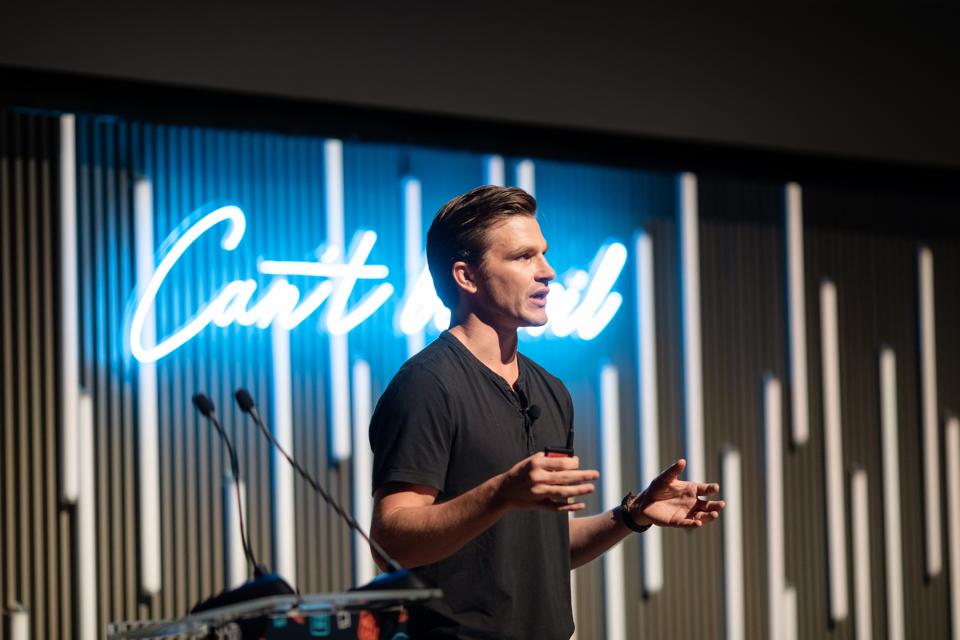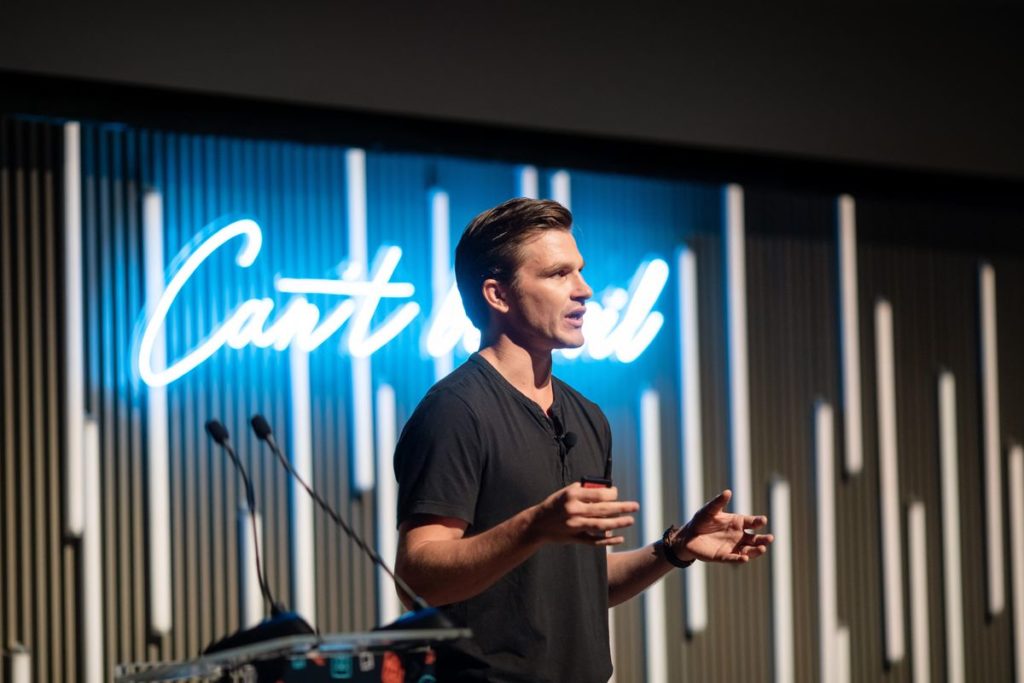
Patrick Stanley speaks at a Blockstack event
Photo courtesy of Patrick Stanley
Freehold, a community development company meant to incentivize crypto holders to actively participate in education and building activities was launched today by Patrick Stanley, former head of growth at Blockstack. Although a wholly separate entity, Freehold is funded initially by Blockstack and early proof of concept products will center around bitcoin and STX (the Stacks token), which is the native token of the Blockstack ecosystem.
With Freehold, Stanley hopes to foster a new model for validating and building crypto commonwealths with community leaders at the center. In doing so, he is attempting another iteration of a decentralized model that moves away from passive staking activities towards rewarding active participants in a network or subset of a network.
“I kinda wanna get people out of the casino, and make it more common to earn in crypto for doing work on behalf of a project,” he says. “If we’re gonna be honest, staking is a very passive thing that requires very little cognitive overhead by human beings. So like, you hold tokens, and you might have your computer do some work that’s fairly trivial.”
[Ed note: Investing in cryptocoins or tokens is highly speculative and the market is largely unregulated. Anyone considering it should be prepared to lose their entire investment.]
To be admitted to a Freehold community, one has to show what Stanley is calling Proof of Hodl, otherwise known as skin-in-the-game by holding (at least a nominal amount of) tokens. Once in, there are two tracks: educate and build. Rather than current DeFi-style staking in which a user agrees to lock up a certain amount of their crypto tokens in order to gain from activity on the underlying network, Freehold encourages a more active model. As users complete tasks, build products, and evangelize the network, they gain rewards.
With the Freehold approach, Stanley is hoping to lean into what he sees as a massive sea change in how products, companies, and really entire communities are formed. With what he is calling the user-staker model, “It actually collapses the notion of stakeholder and user as one thing, and creates this closed loop. I think that’s actually a super valuable thing for the next generation of community founders, which I believe is going to be a big trend in the 2020s. The trends leading up to the 2020s were kinda engineer-as-founder, or sales-as-founder. I think in the 2020s we’re gonna have community, or community leader as founder. And they're gonna use tools like Proof of Hodl login that are working for the success of their product or service, instead of just investing in it and not doing much else.”
The first communities and activities will center around STX, the native token of the Blockstack ecosystem and a subset of the Bitcoin ecosystem. The economics of STX are designed so that holding STX is rewarded with bitcoin, with the STX token tying it’s security model to the Bitcoin blockchain. As user-stakers complete work, they will be rewarded with additional bitcoin and, eventually, STX as well. Despite early funding and his many successful years at Blockstack, though, Stanley’s vision is much greater. He plans eventually to target many additional open protocols, finding ways to better distribute useful work across the wide spectrum of talent available in the crypto ecosystem. Says Stanley, “a worthy thought experiment is what if you actually just carved out only the stakeholders that were willing to commit work in [interest of the] success of the community.” By targeting these user-stakers specifically, he believes he can align the mission of those involved in a specific Freehold and unlock growth and value that has been hard to capture with tools available today.
With Freehold, Proof of Work or Proof of Stake becomes Proof of Sweat, opening the path for better and more streamlined ways of organizing holistic open source development. While it will take time to develop, the bold strategy is an interesting one coming at the right time for an industry awash in liquidity that is in many ways still starving for product-market fit. With Stanley’s approach, the focus can shift from the barbell of community member as either token holder hoping for number-go-up or developer hoping for an inflation reward. An entire new spectrum of participant, the user-staker, would have a chance to make a real impact and gain real-time microrewards. With those kinds of opportunities, Freehold could create a toehold into crypto that many prospective but currently underutilized user-stakers have been looking for.
Disclaimer: Rory is an active trader and investor holding positions in several cryptocurrencies as well as equities and other private investments at any point.


